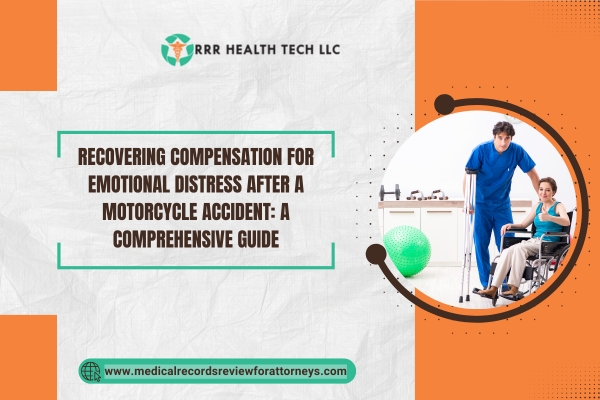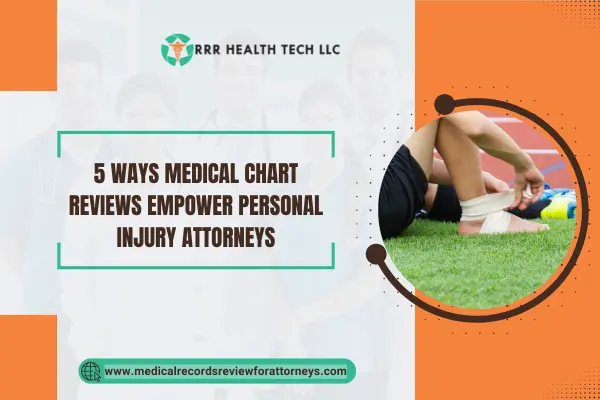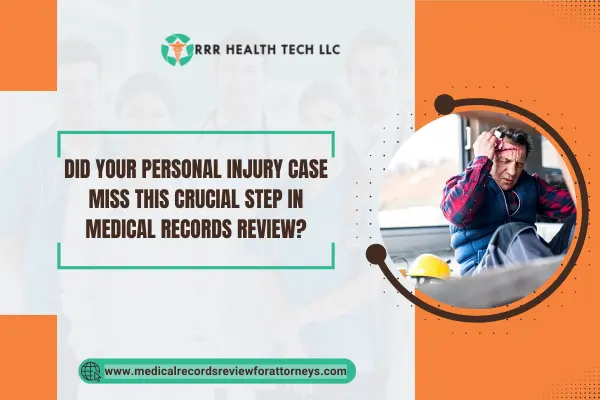
Introduction
Motorcycle accidents often result in grave injuries. However, it’s crucial to acknowledge the emotional suffering that accompanies such incidents. Emotional distress is an affliction that many victims contend with in the form of anxiety, depression, or PTSD. As much as attorneys and victims want to understand how to recover compensation for their distress, there’s a gap in understanding of its claims. In this article, I will focus on the legal structure concerning emotional distress claims, the role medical records play, and provide useful tips to legal practitioners.
Understanding Emotional Distress in Context with Motorcycle Accidents
What is ED?
This is the suffering psychological pain that stems from an accident or traumatic event. Legally, this pain can encompass:
• Anxiety
• Depression
• PTSD
• Loss of enjoyment of life
Legal Basis of ED Claims
In most jurisdictions, Emotional Distress claims are divided into two parts: In many jurisdictions emotional distress claims are separated into two categories. 1. The first being: Intentional Infliction of Emotional Distress (IIED) where a defendant’s conduct is so outrageous that it causes severe emotional distress to a victim.
- Negligent Infliction of Emotional Distress (NIED): A party is liable for NIED when emotional distress follows the negligent actions of a party, irrespective of the presence of any bodily harm to the plaintiff.
Critical Issues to Recover Damages
Establishing Emotional Distress
In order to recover damages for emotional distress, plaintiffs must usually show the following:
• Severity of Distress: The distress experienced should be more than mere inconvenience. Medical files supporting this can prove helpful.
• Causation: A relationship between the emotional distress and the motorcycle accident must be established.
• Impact on Daily Life: The victim’s daily life and general satisfaction of life must be substantiated by the emotional distress evidence.
Importance of Medical Records
Medical records are essential to support claims of emotional distress. These include but are not limited to:
• Diagnosis of Mental Health Conditions: Diagnosis of anxiety or PTSD can be confirmed by the relevant mental health personnel’s notes.
• Treatment History: Proof of attending therapy sessions, medication ordered, and other treatment(s) can show the level of the distress.
• Expert Testimony: Physicians are able to give opinion evidence of the injury suffered by the victim as a result of the accident and its consequences on the victim’s mental health.
Case Studies
Case Study 1: Motorcycle Accident Due To PTSD
Overview: A collision with a car that disregarded the red light led to a motorcyclist suffering both physically and psychologically.
Challenges: The offending insurance company attached to the car subject claimed the emotional trauma was far over exaggerated.
Solutions: The lawyer involved in the case obtained all necessary medical files to prove the victim suffered from PTSD and provided evidence with the expert’s claim which included a psychologist explaining how the accident affected the victim mentally through his testimony.
Case Study 2: Emotional Distress Due To a Fatal Accident
Overview: A rider died in a motorcycle accident, leaving behind a spouse who was emotionally traumatized which gave rise to emotional distress.
Challenges: The spouse of the deceased rider struggled to emotionally cope with the death and proving that without an injury did not help her in any way.
Solutions: The lawyer implead supported the claim by showing the spouse’s medical records of attending therapy and consulting mental professionals while also collecting personal accounts from family and friends supporting the claim.
Conclusion
Obtaining compensation for emotional pain as a result of a motorcycle accident is a daunting task, which, among many other things, requires knowledge of the law along with uncontested evidence. Victim needs to prove the magnitude of their emotional distress and the direct correlation between it and the accident. Supporting such claims with sober medical evidence is imperative, as medical paperwork provides both necessary data and expert opinions, which can be decisive in any case. Lawyers can improve their approaches using medical record review services because is ensures all relevant data is covered and analyzed at depth with the right attention to detail. In turn, this enhances the lawyers’ ability to serve their clients and guarantee them the compensation they need.


